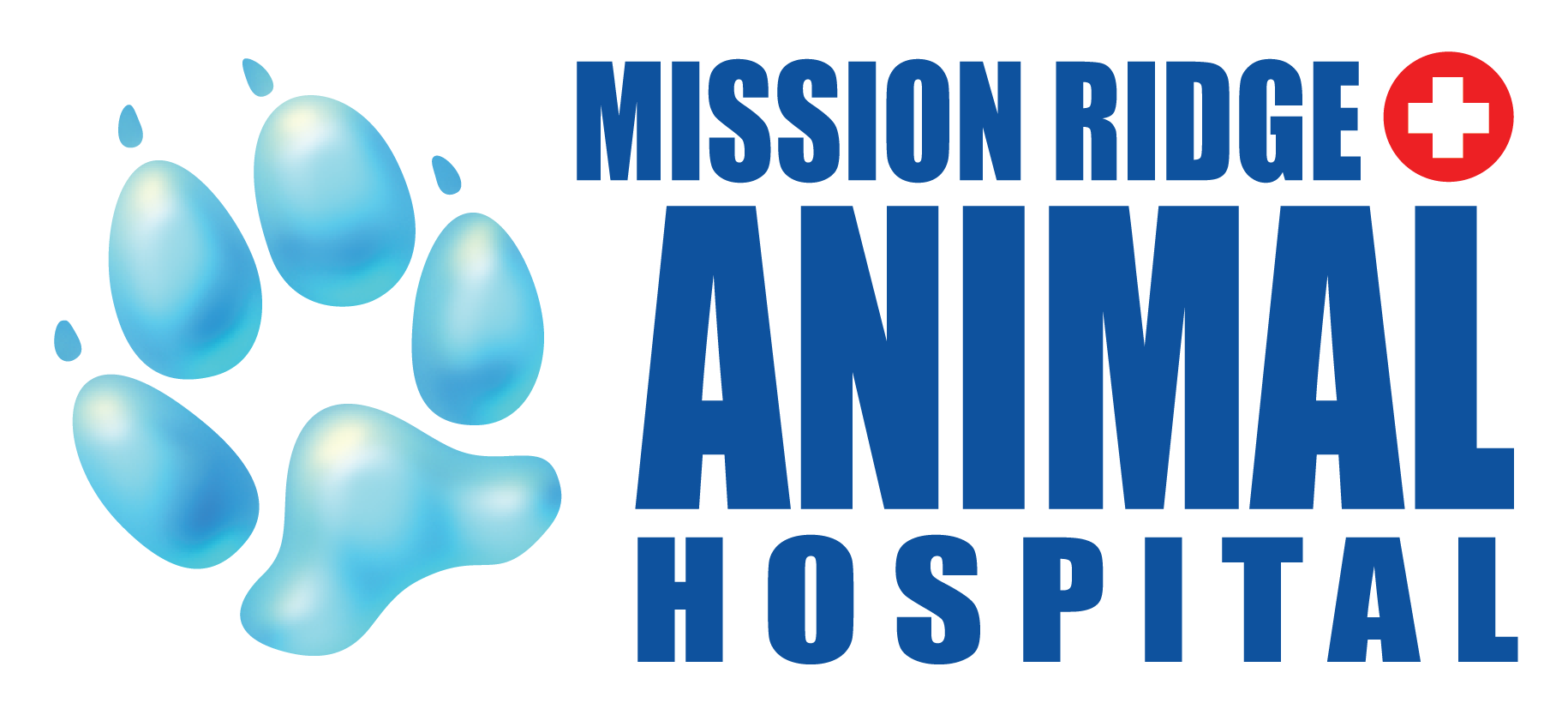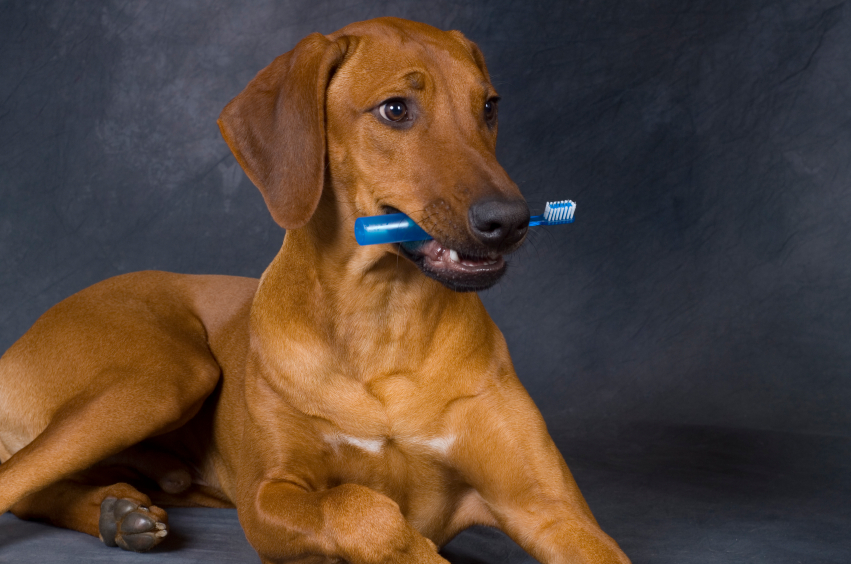As a veterinarian, I find some form of dental disease in almost every dog or cat that I examine regardless of age or breed. Approximately 80% of dogs and cats over 3 years old have some periodontal inflammation.
Why are teeth so important? If you have ever had a toothache you probably already realize how much that affects your mood and everyday activities. Diseases of the teeth and mouth affect pets overall health and well-being. Sometimes it might only be a subtle dull pain but this can affect their enjoyment of food and life in general.
Without proper dental care, bacteria, known as plaque, build up above and below the gum line. These bacteria may calcify to form tartar which we see as the brown color on the crowns of the teeth. The bacteria invade the bone and tissues surrounding each tooth and eventually ‘eat’ away at the bone causing the tooth to become loose or the root to become infected. Sometimes this can lead to a significant abscess or pocket of infection. All of these can be painful and uncomfortable. These same bacteria could potentially invade the blood stream and then affect the animal’s heart, liver & kidneys.
So what does proper dental care involve? The main goal of dental care in pets is to prevent these bacteria from building up and causing irreversible damage to the teeth and jaw bone. The very best way to do this is to regularly clean your pet’s teeth. This should be done both at home on a daily basis and yearly (or every few years) with your veterinarian. The earlier in their life that you start dental care, the more benefits you will see.
Dental care you can do at home involves brushing your pet’s teeth with a toothpaste specific for dogs and cats. It should not be a battle or a painful process for your pet. Pet toothpastes come in many different tasty flavors and pet toothbrushes come in many different shapes and sizes. It may take some trial and error to see what works best for you and your furry friend. Your veterinary team can help you with some tips and tricks on how to get started. Other products that can be very useful for ‘at home’ dental care are: prescription dental diets (available at veterinary clinics), gels, rinses and certain chew treats.
It is also very important that your pet have their teeth examined yearly by your veterinarian. Your veterinarian may recommend a professional cleaning of your pet’s teeth just like you would have performed by your dentist. The only difference is that your pet will need to be given anesthesia for a proper cleaning to be achieved.
Written by: Dr. Jessica Wilson



